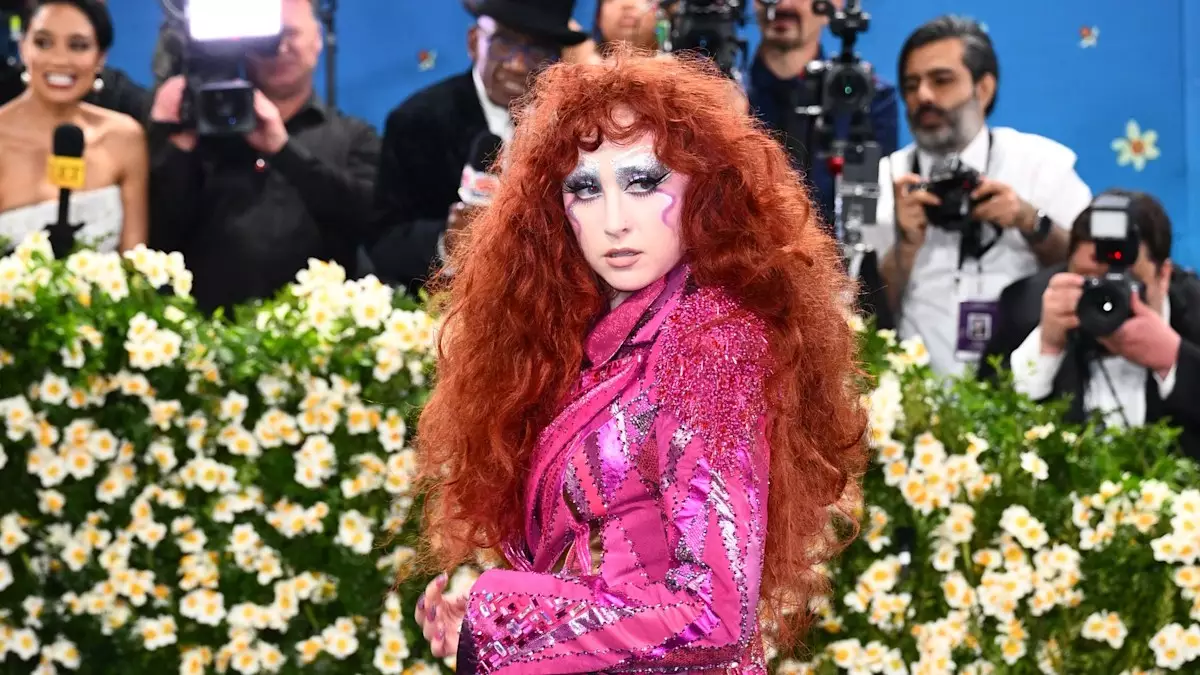In an era where fame has become synonymous with invasion of privacy, emerging pop sensation Chappell Roan is bravely confronting the darker side of celebrity culture. During an engaging conversation on the Outlaws podcast with TS Madison, Roan expressed a radical notion: if her personal boundaries are not respected, she may abandon her burgeoning music career altogether. This stark ultimatum is not just a reflection of her personal values but also an alarming testament to the psychological toll that being thrust into the limelight can inflict on artists.
Chappell, known for her stunning ascent from the indie music scene to headliner status within a few short months, has found herself grappling with the implications of rapid fame. For any artist, the transition from anonymity to celebrity can be exhilarating yet daunting. However, Chappell’s experience exposes a crucial element often ignored by the public and industry alike: the importance of personal agency and mental health in the journey to success. Her commitment to standing up for her rights offers a refreshing departure from traditional narratives that normalize the discomfort often endured by entertainers.
The Villain Era: A Declaration of Self-Defense
Chappell’s candid admission about entering a “villain era” serves as a powerful metaphor for self-protection. Instead of shying away from conflict or criticism, she intends to transform these moments of backlash into a form of empowerment. This shift is particularly notable in an industry that frequently pressures artists to conform to public expectations and allow themselves to be objectified. While the notion of a “villain” character is typically viewed negatively, Chappell reframes it as a badge of honor—an emblem of her determination to defend her boundaries amidst an environment rife with disrespect and violation.
Her candid discussions reveal a profound understanding of the complex relationship between artists and their fans in today’s hyper-connected society. Chappell emphasizes the dangers of a blurring line between intimacy and invasion, a phenomenon exacerbated by social media interactions. In a world where fans often perceive their favorite artists as personal friends, the responsibility of upholding respect and consent becomes critical. Chappell’s audacity to voice her discomforts—from unwanted touching to intrusive questions—demands that fans reconsider the norms of engagement with celebrities.
A Personal Journey Rooted in Authenticity
Chappell’s journey began far from the major label spotlight, rooted in her modest upbringing in southern Missouri. Encouraged by her high school music teachers, she ventured into a world where she honed her craft and eventually caught the attention of industry giants, leading to her remarkable debut album, *The Rise and Fall of a Midwest Princess*. With her eclectic musical style that melds theatricality and drag influences, she has carved a distinct space in pop music. As her aesthetic evolved, so too did her representation of queer identity—a dual journey that resonates deeply with many of her fans.
In an industry that often capitalizes on identity, Chappell’s unapologetic embrace of her authentic self makes her not just a performer, but a beacon for marginalized voices. She has embraced her role as an advocate, using her platform to highlight mental health issues and advocate for queer rights. Her refusal to accept the status quo has culminated in her vocal stance against governmental inaction around LGBTQ+ issues, including her notable refusal to attend a politically charged event at the White House.
Charting a Future Focused on Respect and Agency
As Chappell Roan continues to ascend in the music industry, her trajectory will likely serve as a template for aspiring artists who wish to maintain their agency in an often predatory environment. The music business has historically overlooked the emotional well-being of its stars, but artists like Chappell are rewriting the script. In her world, success isn’t just measured by album sales or chart-topping hits—it’s about ensuring that her voice, her experiences, and her boundaries are respected.
With the release of her latest single, “The Giver,” which explicitly highlights LGBTQ+ relationships, it is evident that Chappell is committed to both her art and her causes. This combination bodes well for her future, suggesting that as long as she remains true to herself, she will not only thrive creatively but will also contribute significantly to vital conversations around personal safety and mental health in the entertainment industry. Rather than merely voicing her frustrations, Chappell is setting the stage for a brighter, more respectful future for herself and others in her field—a decision both daring and necessary.


Leave a Reply